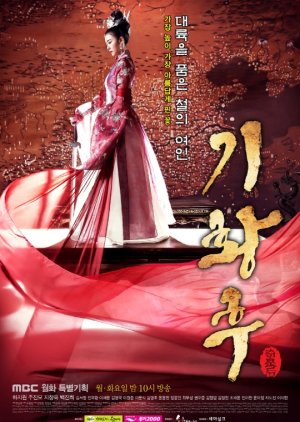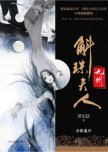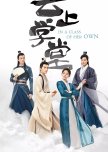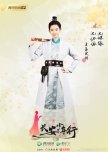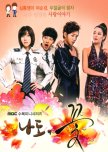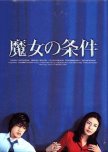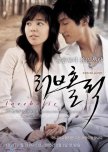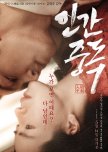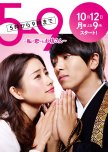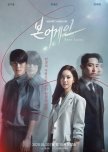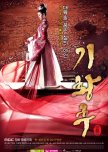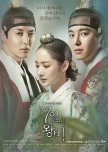
Both used flashbacks that would make you eagerly wait for that specific scene, eagerly wait for what caused it, what was done in order to end up with that kind of event. Both fights for the throne ( therefore both are of royal blood ), thought of strategies. Both male leads love the female leads and the female leads was also once affectionate to the second male lead at first, although in Empress Ki it's much deeper. A secret letter was also involved in both dramas and both female leads were chosen by the deities to have it fall in their hands. ( oooops, I used deities, hahaha, too much saeguk i guess. Haha. )
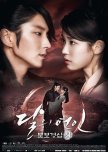
Okay, I know some of you may be like "Whaa?" but hear me out on this one.
Both are about girls stuck in a political battle between kings.
Both have two (or more) love interests fighting over them.
Both have feelings for two characters.
Both are historical (duh).
And they both have main leads who are humanly flawed and aren't always the best people - which is understandable in this era and time.
Both are about girls stuck in a political battle between kings.
Both have two (or more) love interests fighting over them.
Both have feelings for two characters.
Both are historical (duh).
And they both have main leads who are humanly flawed and aren't always the best people - which is understandable in this era and time.
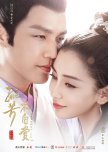
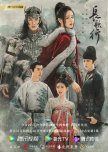
As I was watching TLB and the focus went to the grasslands (Ashile tribe), I immediately got reminded of Empress Ki. I watched Empress Ki years ago but despite watching it a long time ago, it has still left a lasting impact on me. In Empress Ki, we have the Mongolians. While both FL in the drama grew up in different backgrounds, both are brave warriors who are good at fighting and cross dressed as males. But I would have to warn that Empress Ki is a bit more hardcore and intense in terms of all the plotting and schemings, and the characters in Empress Ki aren't as likeable as in TLB. While I can't seem to name what's so similar about the two dramas, I personally enjoyed both .
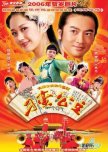
Similarities
=> Both are stories of women who are considered "action" girls. They both eventually became the empress of a Chinese empire.
=> The emperor doesn't realize the girl's real identity as a woman until much later episodes. Its because he thought she was a man when he first met her
=> There's a lot of palace intrigue. The prospective bride of the emperor, basically tortures the female lead because she was jealous of her.
=> Both emperor's have a "loyal" eunuch.
=> Both are stories of women who are considered "action" girls. They both eventually became the empress of a Chinese empire.
=> The emperor doesn't realize the girl's real identity as a woman until much later episodes. Its because he thought she was a man when he first met her
=> There's a lot of palace intrigue. The prospective bride of the emperor, basically tortures the female lead because she was jealous of her.
=> Both emperor's have a "loyal" eunuch.
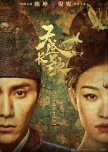
Both are historical dramas that are centered around scheming and power struggles in the imperial court with intelligent and crafty protagonists seeking revenge against powerful political factions.
Both also have cross-dressing female leads. Empress Ki has more action and focus on the love triangle, while The Rise of the Phoenixes has more complex politics. The romance in The Rise of Phoenixes is also strong, but more understated. I found that both dramas had compelling characters as well as some excellent performances. The Rise of the Phoenixes definitely has higher production values. Empress Ki has faster (and generally more even) pacing.
Both also have cross-dressing female leads. Empress Ki has more action and focus on the love triangle, while The Rise of the Phoenixes has more complex politics. The romance in The Rise of Phoenixes is also strong, but more understated. I found that both dramas had compelling characters as well as some excellent performances. The Rise of the Phoenixes definitely has higher production values. Empress Ki has faster (and generally more even) pacing.
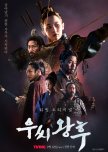

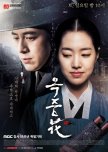
Both plots is around headstrong, intelligent and strong female leads that go from them being the underdogs to gaining power.
i liked that in both shows the main character knew how to stick up for themselves and actually had more than one fight scene (where they didn't need the main guy to save them all the time).
Empress ki definitely had a better and well developed romance arc.
i liked that in both shows the main character knew how to stick up for themselves and actually had more than one fight scene (where they didn't need the main guy to save them all the time).
Empress ki definitely had a better and well developed romance arc.
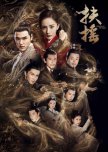
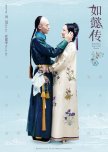
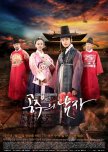
Both Sageuks are/have:
--- a Strong Female Lead .... Smart, tough, brave, righteous and steadfast, etc...
--- an 'Epic Romance' ... most palpable Passionate / Intense Loves.
--- extremely Well-Crafted in ... directing, acting, cast, plot, costumes, music, etc....
--- Well-Balanced & Fast-Moving Plot ... ... interweaving of romance/revenge/action/intrigue.
--- Political Intrigue ... ... about ascension to the throne.
--- Unforgettable Characters! .... ... many, including the great villains!
--- Loves start w/ Mistaken Identities ... ... both females were in disguise when the male leads met them ...
Note: writing in Empress Ki, somewhat falters in 2nd half.
--- a Strong Female Lead .... Smart, tough, brave, righteous and steadfast, etc...
--- an 'Epic Romance' ... most palpable Passionate / Intense Loves.
--- extremely Well-Crafted in ... directing, acting, cast, plot, costumes, music, etc....
--- Well-Balanced & Fast-Moving Plot ... ... interweaving of romance/revenge/action/intrigue.
--- Political Intrigue ... ... about ascension to the throne.
--- Unforgettable Characters! .... ... many, including the great villains!
--- Loves start w/ Mistaken Identities ... ... both females were in disguise when the male leads met them ...
Note: writing in Empress Ki, somewhat falters in 2nd half.

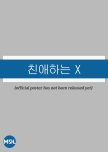
Dear X" is a contemporary drama set in the entertainment industry, while "Empress Ki" is a historical drama set in the Goryeo and Yuan dynasties.
Strong Female Lead: Both dramas feature strong and independent female protagonists who defy societal expectations.
Emotional Depth: Both "Dear X" and "Empress Ki" explore themes of love, loss, and the human condition.
while "Dear X" and "Empress Ki" may not seem similar at first glance, they both offer unique and captivating stories with strong female leads.
Both Dear X and Empress Ki feature strong, manipulative female leads who aren't afraid to play the game to get what they want. However, the extent of their ruthlessness and the underlying motivations differ.
Dear X: The female lead, while cunning and strategic, is driven more by a sense of revenge and a desire to expose the truth. Her actions, though often calculated, are rooted in a personal vendetta.
Empress Ki: The female lead, Ki Seung-Nyang, is a master manipulator who rises to power through political intrigue and strategic alliances. Her ruthlessness is more pronounced as she navigates the treacherous world of the Yuan court,
While both characters exhibit manipulative tendencies, Empress Ki is arguably more ruthless and calculated in her pursuit of power, making her a more complex and morally ambiguous figure.
Strong Female Lead: Both dramas feature strong and independent female protagonists who defy societal expectations.
Emotional Depth: Both "Dear X" and "Empress Ki" explore themes of love, loss, and the human condition.
while "Dear X" and "Empress Ki" may not seem similar at first glance, they both offer unique and captivating stories with strong female leads.
Both Dear X and Empress Ki feature strong, manipulative female leads who aren't afraid to play the game to get what they want. However, the extent of their ruthlessness and the underlying motivations differ.
Dear X: The female lead, while cunning and strategic, is driven more by a sense of revenge and a desire to expose the truth. Her actions, though often calculated, are rooted in a personal vendetta.
Empress Ki: The female lead, Ki Seung-Nyang, is a master manipulator who rises to power through political intrigue and strategic alliances. Her ruthlessness is more pronounced as she navigates the treacherous world of the Yuan court,
While both characters exhibit manipulative tendencies, Empress Ki is arguably more ruthless and calculated in her pursuit of power, making her a more complex and morally ambiguous figure.


